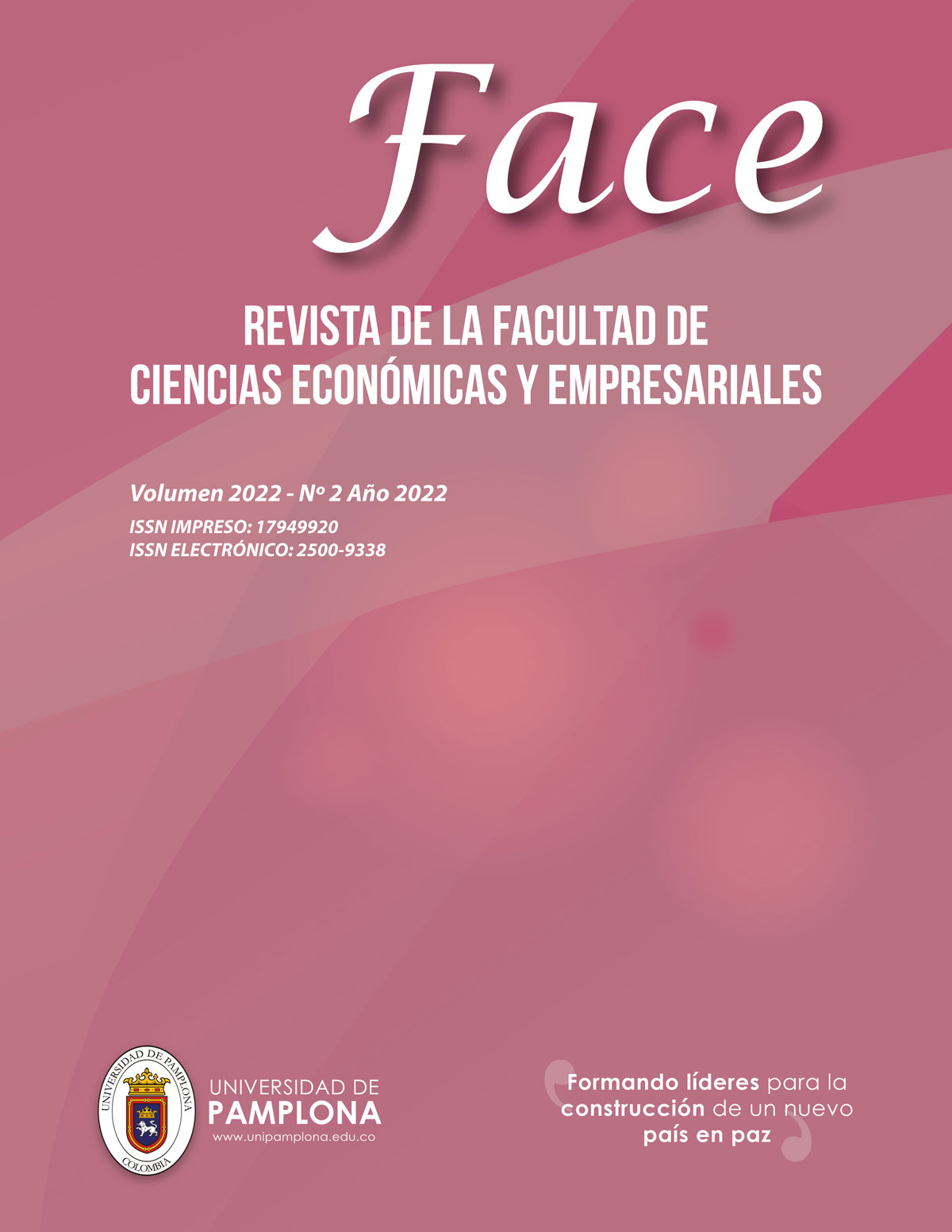Spiritual growth, stress management, and personal gratification of consumers during the COVID-19 pandemic.
DOI:
https://doi.org/10.24054/face.v22i2.1336Keywords:
Indulgence, consumer behavior, online shopping, Covid-19, Spiritual Growth, Purchase TherapyAbstract
The COVID-19 pandemic has transformed the purchasing habits of Mexican consumers. Spending most of the day at home due to restrictions, people sought out products to help them pass the time more pleasantly. To understand this shift in purchasing behavior, a study based on Mick et al.'s (1992) theory of self-indulgence was conducted, with the participation of 657 adults, 65.4% of whom were women. Cluster analysis and factor analysis were employed, allowing the identification of three groups based on two main factors: Spiritual Growth and Personal Indulgence.
Downloads
References
Adegboyega, A., Boddie, S., Dorvie, H., Bolaji, B. Adedoyin, C. & Moore, S. E. (2020). Social distance impact on church gatherings: Socio-behavioral implications. Journal of Human Behavior in the Social Environment, 31(1-4), 221-234.
Baker, J. O., Martí, G., Braunstein, R., Whitehead, A, L. & Yukich, G. (2020). How COVID-19 Presents New Directions for Research. Sociology of Religion: A Quarterly Review, 81(4), 357-370.
Belk, R. W. (2020). Post-pandemic consumption: portal to a new world?.Cadernos EBAPE. BR,18(3), 639-647.
Bentzen, J. (2020). In Crisis, We Pray: Religiosity and the COVID-19 Pandemic (No. 14824). CEPR Discussion Papers.
Capponi, G., & Araújo, P. C. (2020). Occupying new spaces: the “digital turn” of Afro-Brazilian religions during the COVID-19 outbreak. International Journal of Latin American Religions, 4(2), 250-258.
Clarke, P. D., & Mortimer, G. (2013). Self-gifting guilt: an examination of self-gifting motivations and post-purchase regret.Journal of Consumer Marketing.
Echegaray, F. (2021). What POST-COVID-19 lifestyles may look like? Identifying scenarios and their implications for sustainability.Sustainable Production and Consumption,27, 567-574.
GutCheck. (2015). Healthy Vs. Indulgent Foods: Consumers in The U.S., China, And Brazil Help Us Identify Differences and Similarities Among Countries. (10 de Noviembre del 2015). Recuperada el 02 de abril del 2022 de https://www.gutcheckit.com/blog/healthy-vs-indulgent-foods-consumers-in-the-u-s-china-and-brazil-help-us-identify-differences-and-similarities-among-countries/
Gutiérrez, C. & de la Torre, R. (2020). Covid 19: the pandemic as a catalyst for videograce. Espiral Estudios sobre Estado y Sociedad, 27(78), 167-213.
Hapsari, R., & Ayuni, R. F. (2021). E-tail Therapy during the COVID-19 Pandemic: The Role of Customer Mood Reinforcement on E-tail Loyalty.Global Business & Management Research,13.
Kantar (2020). How people are adapting to life under lockdown. Retrieved from: https://www.kantar.com/inspiration/coronavirus/how-people-are-adapting-to-life-under-lockdown-cn
Koles, B., Wells, V., & Tadajewski, M. (2018). Compensatory consumption and consumer compromises: a state-of-the-art review.Journal of Marketing Management,34(1-2), 96-133.
Konstantopoulou, G., & Raikou, N. (2020). Clinical evaluation of depression in university students during quarantine due to covid-19 pandemic.European Journal of Public Health Studies,3(1).
Kowalczyk, O., Roszkowski, K., Montane, X., Pawliszak, W., Tylkowski, B., & Bajek, A. (2020). Religion and faith perception in a pandemic of COVID-19. Journal of Religion and Health, 59(6), 2671-2677.
Kyrousi, A. G., Zotou, A. Y., & Koronaki, E. (2021). Consumers Under Lockdown: Self-Gifting and Mood Alleviation. InStrategic Innovative Marketing and Tourism in the COVID-19 Era(pp. 39-47). Springer, Cham.
Laato, S., Islam, A. N., Farooq, A., & Dhir, A. (2020). Unusual purchasing behavior during the early stages of the COVID-19 pandemic: The stimulus-organism-response approach.Journal of Retailing and Consumer Services,57, 102224.
Larson, L. R., & Shin, H. (2018). Fear during natural disaster: Its impact on perceptions of shopping convenience and shopping behavior.Services Marketing Quarterly,39(4), 293-309.
Malhotra, N-K. Investigación de Mercados: Conceptos Esenciales. Pearson Educación: Ciudad de México, 2016.
Mick, D. G., DeMoss, M., & Faber, R. J. (1992). A projective study of motivations and meanings of self-gifts: Implications for retail management.Journal of Retailing,68(2), 122.
Polat, S. T., & Uyar, K. (2021). Online retail therapy: Examination of retail therapy levels according to consumers' moods.Turkish Journal of Marketing,6(3), 206.
Resonate (2022). State of the Consumer Report. Recuperado de https://insights.resonate.com/state-of-the-consumer-2022?source=CORP-22-SOTC-WP-PR&Last_Campaign_Form_Fill=CORP-22-SOTC-WP-PR&utm_source=press-release&utm_medium=referral&utm_campaign=CORP-22-SOTC-WP-PR
Yuen, K. F., Wang, X., Ma, F., & Li, K. X. (2020). The psychological causes of panic buying following a health crisis.International journal of environmental research and public health,17(10), 3513.
Zulauf, K., & Wagner, R. (2021). Online shopping therapy: If you want to be happy, shop around.Journal of International Consumer Marketing, 1-14.
Zwanka, R. J., & Buff, C. (2020). COVID-19 Generation: A Conceptual Framework of the Consumer Behavioral Shifts to Be Caused by the COVID-19 Pandemic.Journal of International Consumer Marketing, 1-10.
Downloads
Published
How to Cite
Issue
Section
License
Copyright (c) 2022 FACE: Revista de la Facultad de Ciencias Económicas y Empresariales

This work is licensed under a Creative Commons Attribution-NonCommercial-ShareAlike 4.0 International License.





